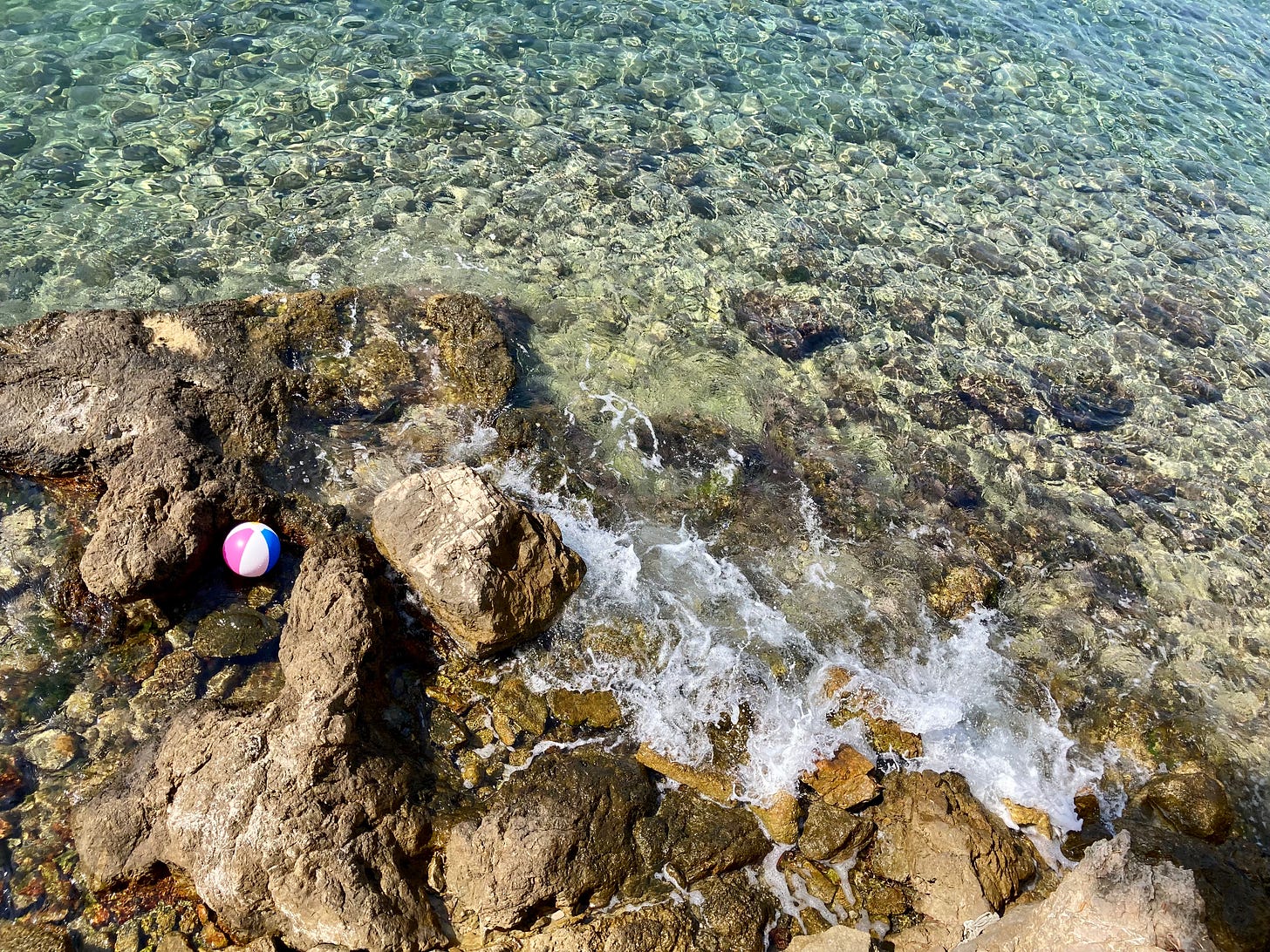Immigrant Strong: August 2021 Issue
On returning home, cabbage, and romanticizing names
This issue is on the short side because I’m writing from Croatia, on the terrace of the family home I grew up in. It’s the first time I took a flight since pre-COVID and the first time I’m seeing a lot of my family in two years. Every time I’m here, I catch up with childhood friends, devour Smoki and Tortica snacks as if I’m 8 again, and climb the same rocks I did as a child to reach the Adriatic Sea. It feels like I’m in a liminal space, where my past self merges with my present self, and my childhood memories blend with those formed in adulthood. It’s a time of intense feelings and reflection that is often filled with desire and pressure to reconnect with my roots, both for myself and my daughter’s sake. It’s also a time when I frequently wonder who I would have become had I not left, and what kind of life I would have led had I stayed.
Azareen Van der Vliet Oloomi’s Savage Tongues was a fitting read for this trip as returning to the motherland comes with a lot of emotion and contemplation for me — just as it does for Arezu, the novel’s main character.
She visits Marbella, Spain, two decades after an abusive relationship with an older man. While the book focuses on her coping with the aftermath of that relationship and sexual assault, the writer, who is Iranian American, weaves in topics such as colonialism, racism, and East-West dynamics. This is definitely not a plot-driven novel, but Arezu’s grappling with trauma and her haunting past kept me engaged throughout the book.
Essays and Interviews
Let’s start with Dust to Dust, a beautiful essay by Sergio Troncoso in Texas Highways.
“This community is at the edge of the edge of the United States, and I became an outsider and iconoclast in this country because of it. My mother belonged to the desolate landscape of Ysleta, yet she yearned to go beyond it. I admired her, yet when I left home, I knew I was traveling farther physically as well as philosophically than she ever could.”
Yoon Choi’s LitHub piece, On Romanizing Korean Names and Writing Immigrant Stories in an Acquired Language, is a great read for any writer with immigrant roots.
“What is the conceit of the immigrant writer? Who is her subject and who is her reader? If English is power, as every immigrant knows, what are her responsibilities for legibility and articulation?”
Here is Megan Vered’s insightful interview with Anna Qu, author of Made in China: A Memoir of Love and Labor for The Rumpus.
“Of course, most parents want to shield their children from the hardships they went through, but being a child of immigrants, we’re expected to understand that hardship without being told about it. That has to change. For example, my mother wanted us to know her hardships but wouldn’t actually share them with us. It also makes my generation ingrates because “we don’t understand.” The lose-lose situation becomes an unspeakable cycle.”
I love PEN America’s DREAMing Out Loud workshop series for young immigrant writers; here is an excerpt from the anthology in Guernica, It’s About Altares, by M. Vázquez Vasquez.
“I’m a native. I know this plaza like the back of my hands. It goes right above the river, and in these circles of knowledge, water is known as a conduit for psychic phenomena. The limestone kept me thinking about the theory that residual energy from a traumatic event leaves an imprint and will replay itself indefinitely.”
I enjoyed Jessica J. Lee’s What Cabbage Teaches Us About Care and Culture, part of her Catapult column, Non-Native Species.
“The plants we call crops are always bound up with culture—domestication is the process of becoming at home with them. When we speak about crops, it can seem so easy to forget that they are plants—derived through our care and attention from wild relatives. So often, engaging with crops is a mode of enculturation—a link not just to land but to the languages, identities, and nations that have created them, prized them, and passed them down.”
I know it may feel like forever ago that Sunisa Lee won an Olympic gold medal, but this Washington Post opinion piece by Phillipe Thao on the Hmong community, the diaspora, and how it owes nothing to the United States, is excellent.
“To see her win a gold medal on a global stage feels like being acknowledged by a history that has only erased us. It’s not that the world finally noticed us; we wrote ourselves into the record. To be part of a diaspora means to create a home in lands that don’t want you in them; to constantly carve out spaces just so you can exist. Lee is a product of that resilience.”
Thanks for reading — and enjoy a few photos from my beautiful motherland,
Vesna
About this newsletter: Writing about immigrant and refugee life—the struggles, triumphs, and quirks—by immigrants and refugees, and children of immigrants and refugees. Photo in the logo: Miguel Bruna/Unsplash.
About me: I grew up in the former Yugoslavia, then immigrated to Canada, and now live in the United States, where I work as a writer and communications consultant for nonprofits focusing on human rights and social justice. I have written about my immigrant experience for The New York Times, Catapult, the Washington Post and the New York Daily News. This year, I attended Martha’s Vineyard Institute of Creative Writing conference as a parent-fellow, and participated in the Tin House Summer Workshop. Find me on twitter, @vesnajaksic, or on my website, www.vesnajaksic.com.





